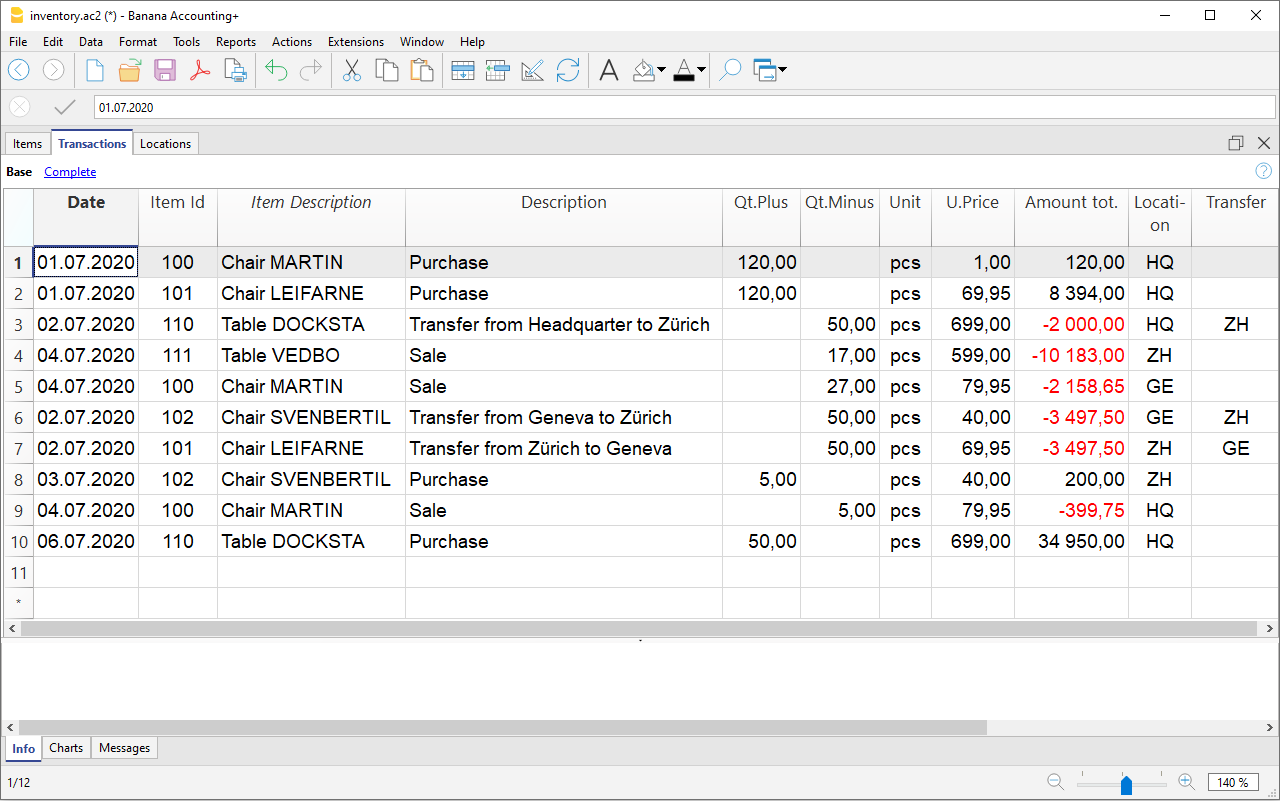In this article
This is the table where the movements of the items are recorded:
- Purchases
- Sales
- Transfers from one warehouse to another, in case you are running several warehouses.
By inserting the movements, the Items table is also automatically updated, in relation to the quantities and corresponding values of the items.
If several warehouses (headquarters and branches) are run simultaneously, the ID codes, set in the Locations, can be recorded, which will refer to the places where the warehouses are located, in order to keep track of the internal movements of the articles.
The ID abbreviations must be entered in the Locations and Transfer columns of the Transactions table. If they are not visible, they can be displayed via the Data → Columns setup menu.

Transactions table columns
- Links
Link to a digital document. - Date
The date of the operation. - Doc.
Document number (e.g. delivery note number). - ItemsId
Numeric or alphanumeric value to identify the item. - ItemsDescription
Text taken automatically from the Id column of the Items table for the description. - Description
Text to be entered for the description of the items. - Notes
In the column you can enter notes about the items or for any other requirement. - QuantityPlus
Value to indicate the quantities of incoming items, purchased or transferred from other inventories. - QuantityMinus
Value to indicate the quantities of items that are outbound, sold or transferred to other inventories. - ReferenceUnit
Abbreviation to indicate the type of unit. - UnitPrice
The price of the item with which the total value of the items is calculated, based on quantities. - AmountTotal
Total value of the items purchased, sold or transferred. - LocationsId
Identification of the place where the Inventory is located and from which the items enter or leave. - LocationsDescription
Name of the place where the inventory is located, from which the items come in or out. - LocationsTransferId
Code of the place where the inventory is located for which the items are intended.
It works the opposite way to the LocationsId.- If there is an entry to LocationsId, there will be an exit to LocationTransferld.
- If there is an exit from the LocationsTransferId there will be an entry.
- If LocationsTransferId is indicated, but the LocationsId is left empty, the program will still consider it as an internal movement without a specific LocationsId.
- LocationsTransferDescription
Name of the place where the inventory is located, from which the items arrive or leave, to or from another inventory.